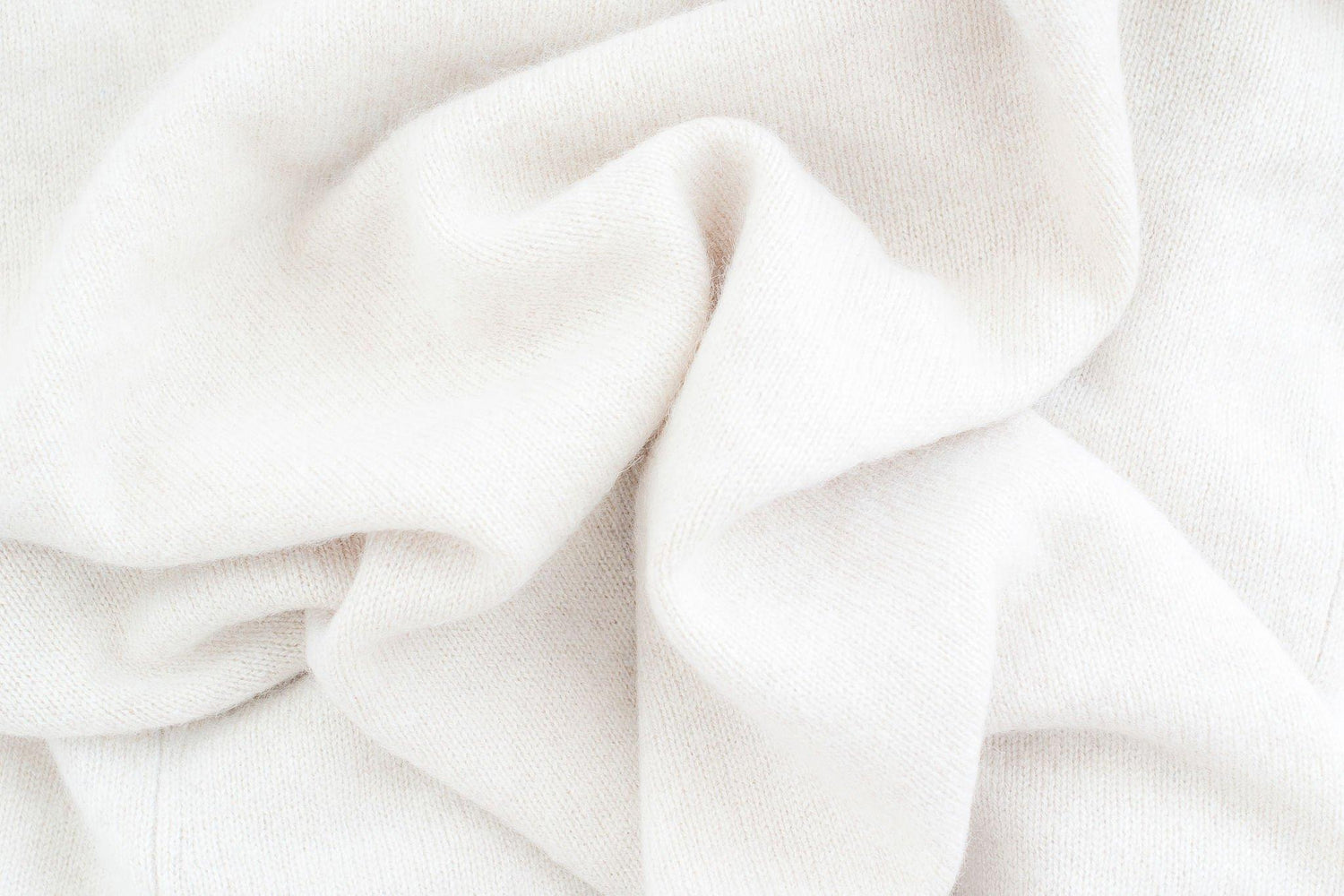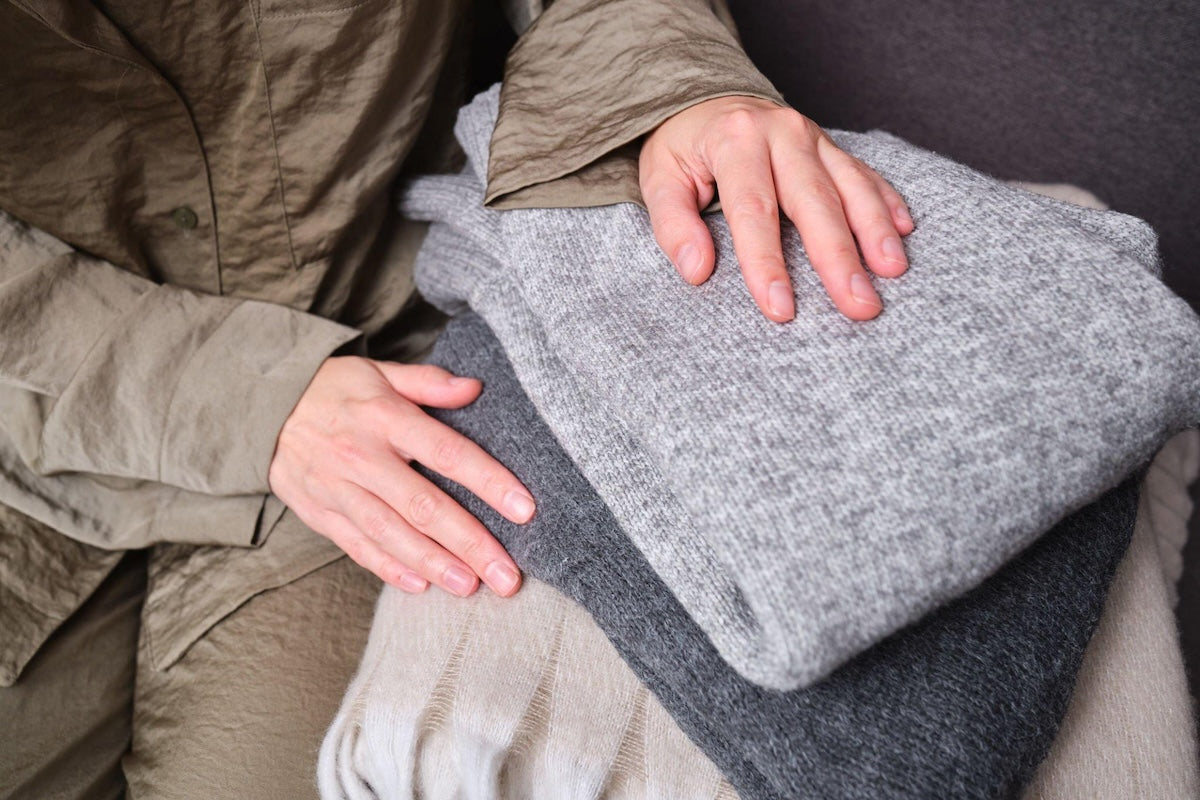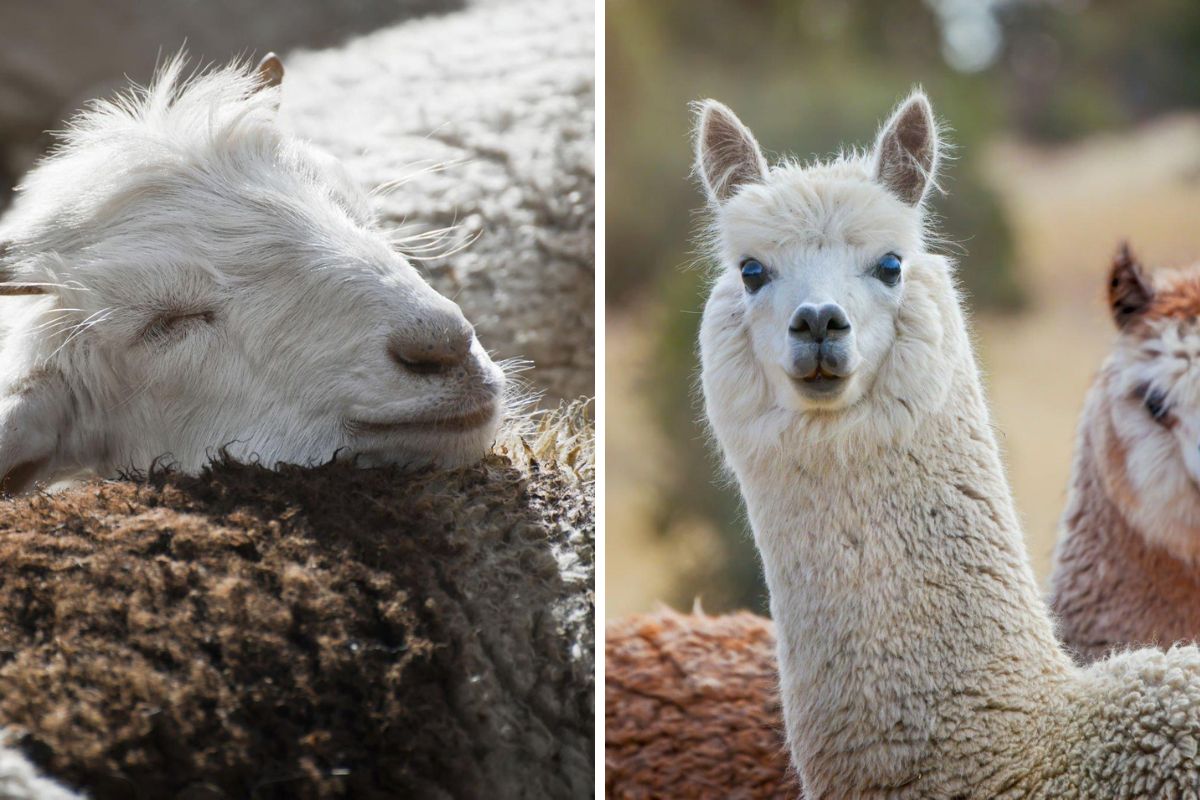Cashmere is well-known for being the fiber of kings and 'fabric gold.' For years, cashmere has been celebrated for its incredible qualities that go beyond the boundaries of fashion and comfort.
With cashmere, you can look and feel good, knowing that you're investing in an eco-friendly and sustainable product.
But what are the benefits of cashmere? If you're thinking about investing in cashmere sweaters, scarves, blankets, or really any other cashmere piece, you're going to want to listen up. We're going to walk you through the advantages of choosing cashmere over other fabrics.
So, if you're ready to get cozy, then let's jump right into it.
1. Softness and Comfort
Cashmere is one of the most comfortable and luxuriously soft materials in the world - and for a good reason! In fact, the comfort of these natural fibers is one of the biggest benefits of cashmere.
Cashmere wool is derived from the soft under-layer of cashmere goats and the natural fibers are incredibly fine. Generally, a cashmere fiber is less than 19 microns in diameter. To put it in perspective, human hair usually ranges anywhere from 60 to 120 microns. This delicate fabric is that fine.
Additionally, this fabric has a high-loft quality, which means that there's a large amount of air that is trapped within the cashmere fibers. This is what gives cashmere fabrics their plush feel and silky texture that is not only soft but ultra-comfortable against your skin. If you have sensitive skin, cashmere's natural fibers are the be-all and end-all when it comes to comfort.
But that's not all. Cashmere clothing actually gets softer with age (as long as it's cared for correctly). So, the more you wear your cashmere, the more comfortable it will get over time.
2. Warmth and Insulation
Warmth and insulation are some of the standout benefits of cashmere. It offers you superior warmth compared to synthetic fibers, sheep's wool, and merino wool. The reason for this can actually be put down to the freezing temperature in which cashmere goats live.
The softer undercoat of cashmere goats is what protects them against the cold, so it should come as no surprise that cashmere clothing can be up to eight times more insulating than other standard wool types.
The natural fibers of cashmere can also adapt to your body temperature, keeping you toasty and comfortable, even when it's colder than ice outside. Still, cashmere garments aren't only great for beating the cold. In fact, cashmere fibers and their resulting products are versatile and can adapt to the seasons.
3. Breathability
We can't speak about the benefits of cashmere without mentioning its breathability, which is something that sets it apart from synthetic fibers. Let's face it - synthetic fibers can often leave you feeling hot, sweaty, and irritated. Luckily, this luxurious fabric is naturally breathable, allowing air to circulate through it.
Although cashmere fibers are designed to keep cashmere goats warm, that's not all that they're good for. It's also designed to regulate the body temperature of a cashmere goat through moisture-wicking. Cashmere fibers actually draw water away from their bodies to keep them cool and dry in any conditions.
It works the same for humans, too! Typically, cashmere wool can help regulate your body temperature, which means that it can keep you toasty in the cold winter months and cool in the heat of summer.
This is all because of its fantastic moisture-wicking abilities. Cashmere garments are the perfect addition for any season, and moisture-wicking cashmere is among some of the best cashmere money can buy.
4. Durability and Longevity
Cashmere can last for years thanks to its optimum fabric durability when you care for it properly. With the right maintenance and cleaning techniques, your cashmere will continue to feel soft and comfortable.
This long lifespan is also connected to another one of the best benefits of cashmere, which is that it's a valuable investment - especially when you compare it with less durable fabrics.
As if this wasn't enough, cashmere is also naturally resistant to pilling. Pilling is when small, fuzzy balls form on a fabric's surface, which is a worry of the past when you're dealing with high-quality cashmere.
Cashmere has excellent shape-retention properties and can retain its form even after long wear and multiple washes. In turn, this means that your cashmere clothes will look as fantastic and gorgeous as the day you bought them, even a few years down the line!
5. Aesthetic and Elegance
A massive defining feature of cashmere is that it's a type of fabric that just oozes sophistication and refinement. The fabric has this amazing ability to drape beautifully, which helps to make cashmere clothes look elegant. Plus, its supple and soft texture allows for it to flow and conform to your body, without feeling too restricting.
It's actually this lightweight nature that adds to its overall opulence and gives it an airy feeling. You can also just throw on a cashmere garment and go, since it's resistant to wrinkles, giving you a more polished look without the effort.
Throughout history, cashmere pieces have been considered the height of sophistication and style, and this doesn't seem to be changing any time soon. So, if you want a timeless and elegant piece in your wardrobe, then cashmere is the way to go.
6. Sustainability and Natural Production
Cashmere fabric is a sustainable and renewable natural fiber. The wool is usually gently combed or sheared from the cashmere goats during their natural molting season, which is when they typically begin to shed their winter coat. Then, as the temperatures drop, the goats begin to regrow their wool. This helps to create a continuous and eco-friendly cycle.
Cashmere that is sourced from reputable sources should have accreditation from certain groups that uphold the standards of sustainable practices in the cashmere industry. These certifications are important to look out for when you're buying new cashmere as well since they can offer you the assurance of luxury while also being guilt-free.
To add to the sustainability and responsibility of cashmere, its natural production process doesn't involve any harsh chemicals. This makes it more eco-friendly than the production of synthetic fabrics. Since cashmere is long-lasting and doesn't need to be produced frequently to replace certain products, the scale of production is also much smaller.
7. Hypoallergenic Properties
Last, but definitely not least, on our list of the benefits of cashmere is its hypoallergenic properties. This means that it's less likely to cause allergic reactions compared to other fabrics, which is particularly true for people who have sensitive skin.
Cashmere also has anti-bacterial properties, which makes it resistant to odors and lets you wear your clothes more than once before needing to wash them. Get ready to say hello to smelling fresh all day long!
Not only that, but pure, high-quality cashmere is entirely free of toxins and chemicals. With less to irritate your skin and cause allergies, you're guaranteed a safe and gentle clothing option. This is also why this delicate fabric is an excellent choice for babies. From baby blankets to clothes made out of cashmere, your little one (and their skin) is sure to thank you.
Conclusion
Cashmere is more than just a fabric - it's also a symbol of luxury and comfort. It's warm, stylish, and good for the earth. What more could we want?
And, as we move toward a culture where people care about quality, manufacturing processes, and being kind to the environment, cashmere continues to be a top choice for many.
Its timeless appeal means that we can expect it to be around for a very long time.
FAQs
Why is cashmere better than sheep's wool?
There are several reasons why cashmere is better than sheep's wool. Just by looking at all the benefits that are on this list, you can easily tell why cashmere is considered the pinnacle of luxurious fabrics.
Although wool also has a ton of advantages, the natural qualities that shine through in cashmere usually trump these benefits. However, the major difference between these two materials is price. Cashmere can be pretty pricey while wool is generally more affordable.
Is some cashmere better than others?
The quality of cashmere can vary a lot. The finest type of cashmere is known as 'Grade A' or 'Grade A White' cashmere. This comes from the underbelly of the cashmere goat and is the softest and most luxurious type.
Additionally, 100% pure cashmere is of a higher quality than other types that are mixed with other fabrics and materials.


